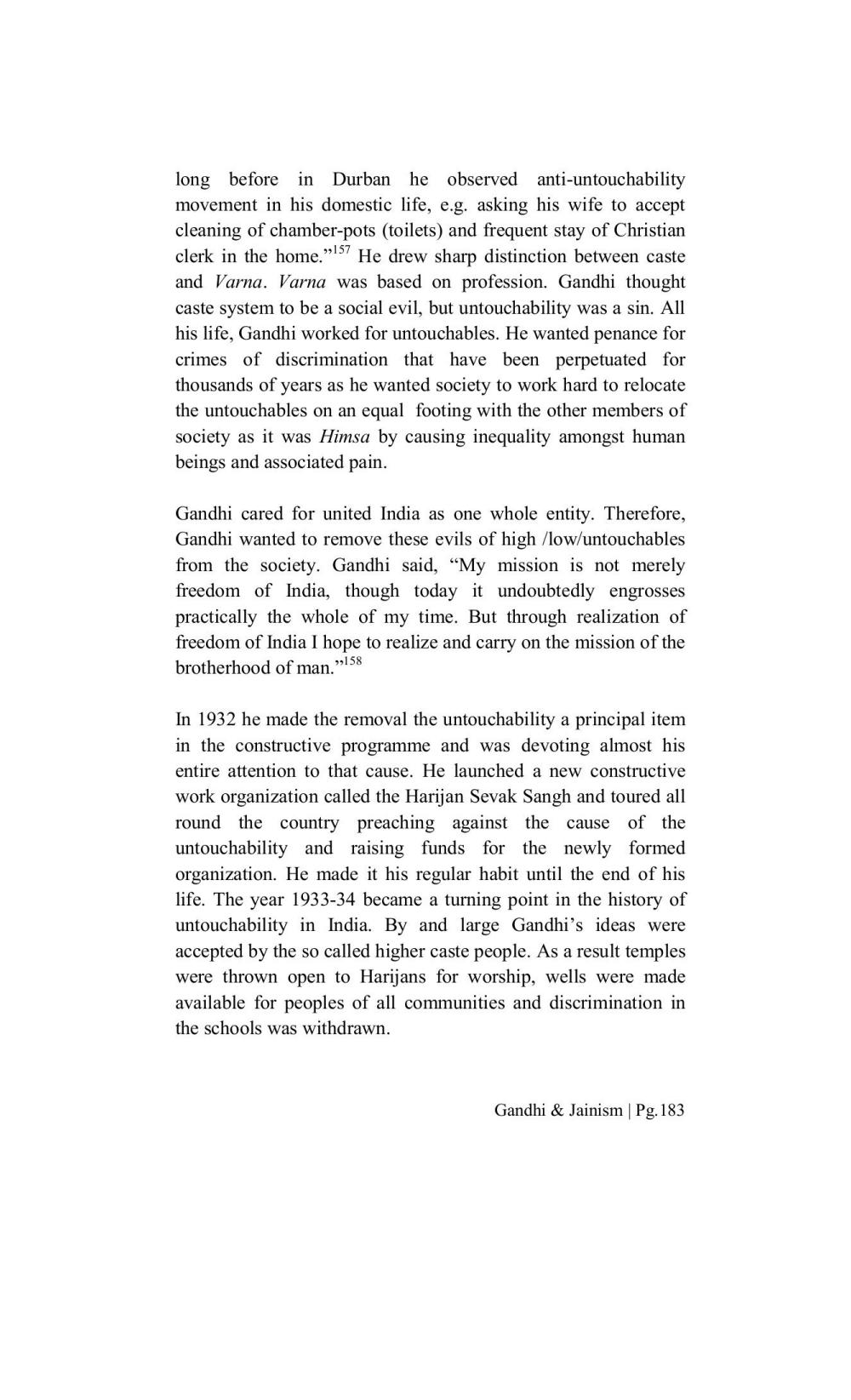________________
long before in Durban he observed anti-untouchability movement in his domestic life, e.g. asking his wife to accept cleaning of chamber-pots (toilets) and frequent stay of Christian clerk in the home.":157 He drew sharp distinction between caste and Varna. Varna was based on profession. Gandhi thought caste system to be a social evil, but untouchability was a sin. All his life, Gandhi worked for untouchables. He wanted penance for crimes of discrimination that have been perpetuated for thousands of years as he wanted society to work hard to relocate the untouchables on an equal footing with the other members of society as it was Himsa by causing inequality amongst human beings and associated pain.
Gandhi cared for united India as one whole entity. Therefore, Gandhi wanted to remove these evils of high /low/untouchables from the society. Gandhi said, “My mission is not merely freedom of India, though today it undoubtedly engrosses practically the whole of my time. But through realization of freedom of India I hope to realize and carry on the mission of the brotherhood of man."158
In 1932 he made the removal the untouchability a principal item in the constructive programme and was devoting almost his entire attention to that cause. He launched a new constructive work organization called the Harijan Sevak Sangh and toured all round the country preaching against the cause of the untouchability and raising funds for the newly formed organization. He made it his regular habit until the end of his life. The year 1933-34 became a turning point in the history of untouchability in India. By and large Gandhi's ideas were accepted by the so called higher caste people. As a result temples were thrown open to Harijans for worship, wells were made available for peoples of all communities and discrimination in the schools was withdrawn.
Gandhi & Jainism
Pg.183




